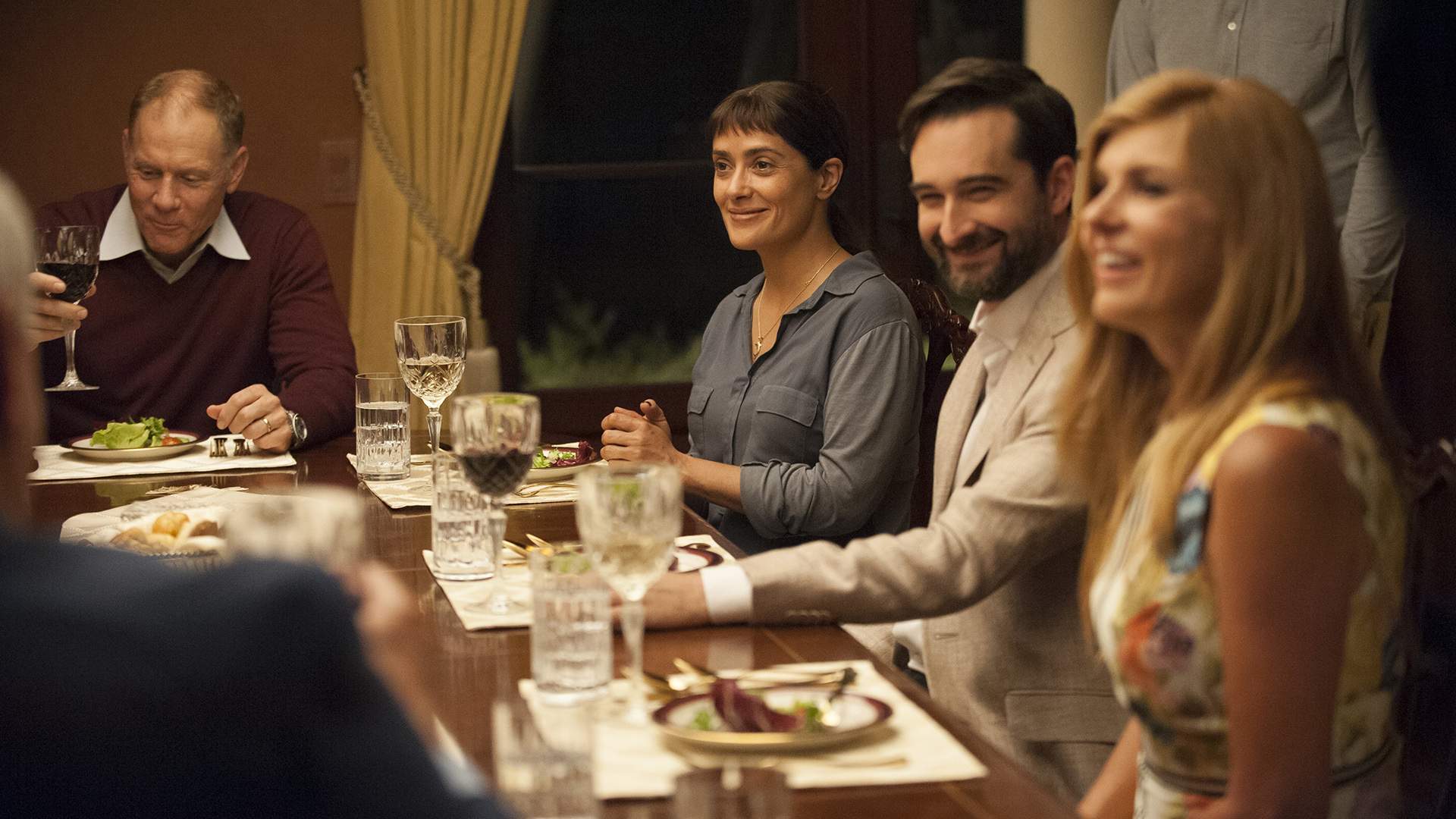Beatriz at Dinner
An astute and intriguing comedy featuring Salma Hayek in career-best form.
Overview
Depending on how you feel about dinner parties, Beatriz at Dinner is either an accurate snapshot of getting together for a meal with friends and acquaintances, or a comically discomforting nightmare. And, depending on how you feel about the current state of world politics, it's either a pointed commentary about real-estate moguls with entitled attitudes and their enablers, or a satire of the chasm between those that have it all and everybody else.
Actually, in each case, it can be both. Beatriz at Dinner hits close to home while proving darkly amusing, and offers a loaded statement about a specific person as well as a general ribbing of the big gap between the wealthy and the not so. In fact, it feels like the type of film you'd get if you took the 2011-2013 TV series Enlightened, swapped Laura Dern for Salma Hayek, and updated it to reflect just how the world has changed in the last four years. To be honest, that's hardly surprising, given the movie and the show share two key creative forces: writer Mike White and director Miguel Arteta.
As the eponymous Beatriz, Hayek is all empathetic eyes and soothing voice, at least to begin with. A Los Angeles masseuse who splits her time between a cancer treatment centre and house calls, Beatriz loves her job healing others as much as she loves her pet dogs and goats — and she's happy to talk about both to anyone who'll listen. At one appointment in a gated community miles from home, she chats away with Kathy (Connie Britton), a regular client with a wheeling-and-dealing husband, Grant (David Warshofsky). When their session is up, Beatriz's car won't start, so Kathy invites her to stay for a meal with Grant's business associates.
Predictably, Beatriz stands out with her jeans and earthy attitude. In fact, when eager up-and-comer Alex (Jay Duplass) and his snobbish wife Shannon (Chloë Sevigny) arrive, followed by rich and powerful head honcho Doug (John Lithgow) and his third bride Jeana (Amy Landecker), they think she's the help. The obvious difference between Beatriz and the rest of the guests provides plenty of humour early on, but White and Arteta soon start to subvert expectations. This isn't a take on The Dinner Game, casting the well-off as vacuous and oblivious idiots. Nor is it a sitcom-style comedy where someone lower down the social ladder causes a few laughs and changes a few opinions, like the recent Madame. Rather, the film slowly but surely lets an impassioned and unwavering Beatriz loose on Doug, and watches everyone else squirm.
Sharp, smart and funny, the end result is entertaining viewing for a number of reasons – even if its ending doesn't wholly satisfy. Warmly shot but purposefully awkward in tone, the film is unafraid to take chances with its class-conflict concept, but at the same time refuses to make even the most villainous characters mere one-note caricatures. White's astute dialogue helps in this regard, ringing true from both Beatriz and her dinner companions. The same applies to Arteta's framing, particularly his decision to always shoot his protagonist as though she's the shortest one in group. And then there's the cast, including well-judged supporting turns from Britton, Sevigny and company, a decidedly human foe in Lithgow, and the wonderfully textured, quietly commanding Hayek in career-best form.





